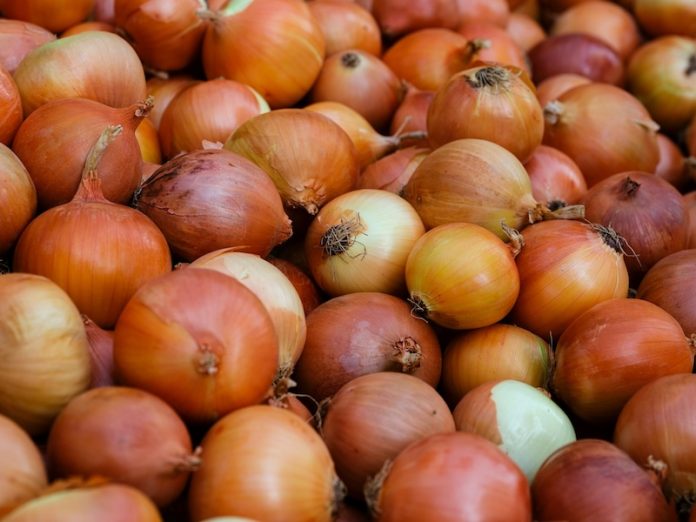
Researchers from the University of Bonn have discovered that red onion skins, often discarded as waste, could offer a surprising health benefit. An extract from these skins may help people who are overweight or obese lower their high blood pressure, a condition that puts millions at risk of serious health problems like heart disease and stroke.
The key ingredient behind this discovery is a natural plant compound called quercetin. Found in many everyday foods such as fruits, vegetables, seeds, and grains, quercetin is especially abundant in capers, red onions, and kale.
It has a slightly bitter taste and is commonly used in health products like supplements and drinks. What makes quercetin stand out is its potential to support heart health, particularly by lowering high blood pressure, also known as hypertension.
High blood pressure is one of the leading causes of heart disease. Managing it is crucial, especially for people who are overweight or obese, as they are at a higher risk. The University of Bonn researchers wanted to test whether quercetin could truly help in reducing blood pressure.
To find out, they conducted a study involving 70 participants, all of whom were overweight or obese and had signs of high blood pressure.
Participants were divided into two groups. One group was given 162 milligrams of quercetin daily, extracted from red onion skins, while the other group received a placebo—a substance with no active ingredients. The study lasted six weeks. The researchers measured the participants’ blood pressure before and after the trial using two methods.
The first was regular blood pressure readings in a clinic, and the second was a more detailed 24-hour monitoring method. This approach allowed them to track blood pressure throughout the day and night.
The results were promising. In participants with high blood pressure, those who took the quercetin supplement showed a noticeable drop in their blood pressure levels compared to those in the placebo group. This improvement was consistent both during the day and at night.
However, the quercetin did not appear to have any significant impact on other health markers such as cholesterol, blood sugar, inflammation, or oxidative stress. While it was effective for blood pressure, it didn’t seem to improve these other areas of health.
The conclusion from this study is clear: taking a daily dose of 162 milligrams of quercetin from red onion skin extract could be an effective and natural way to lower blood pressure, particularly for those at risk of heart problems. However, it’s worth noting that this remedy might not address other health concerns.
Quercetin isn’t the only natural approach to managing blood pressure. Other studies suggest that drinking tea, using certain herbal supplements, or reducing added sugar in the diet can also help.
Some research even shows that vitamin D may improve blood pressure in people with diabetes. These findings highlight the potential of natural remedies in supporting heart health.
This study, published in the British Journal of Nutrition and led by Verena Brüll and her team, adds to a growing body of research exploring simple, natural ways to manage common health problems.
For people concerned about high blood pressure, incorporating natural options like quercetin supplements could offer a safe and effective way to support their health.
If you care about high blood pressure, please read studies about unhealthy habits that may increase high blood pressure risk, and drinking green tea could help lower blood pressure.
For more information about high blood pressure, please see recent studies about what to eat or to avoid for high blood pressure, and 12 foods that lower blood pressure.
Copyright © 2025 Knowridge Science Report. All rights reserved.



